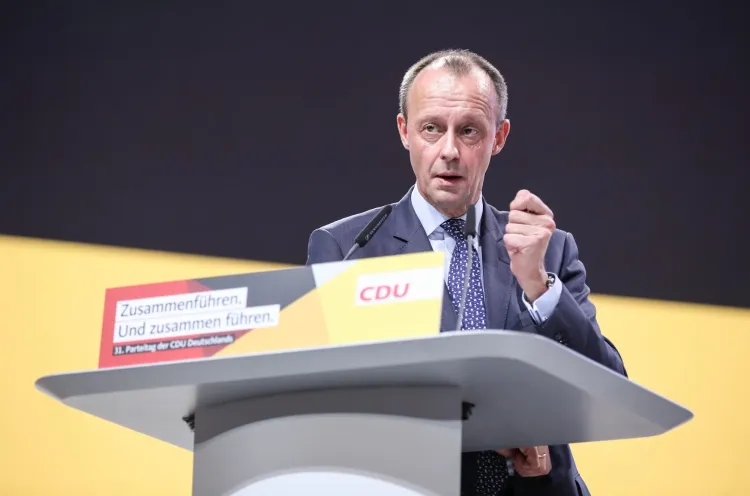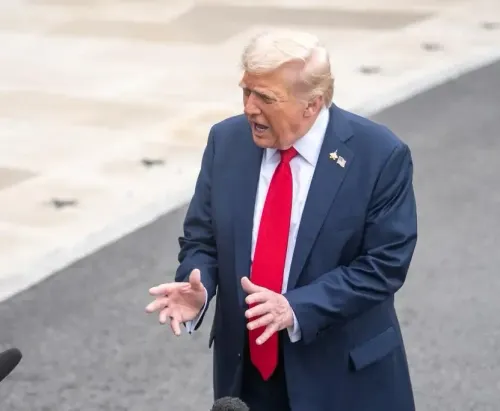Why Did Merz Fail to Secure a Majority in the Vote for German Chancellor?

Synopsis
Key Takeaways
- Friedrich Merz fell short in the Bundestag vote.
- A coalition agreement was reached between CDU/CSU and SPD.
- New government priorities include economic competitiveness and migration reforms.
- A 500-billion-euro fund is dedicated to infrastructure and climate projects.
- Germany continues to uphold its identity as a nation of immigration.
Berlin, May 6 (NationPress) Friedrich Merz, the candidate for German Chancellor from the Christian Democratic Union, did not achieve the necessary majority in the Bundestag vote held on Tuesday, falling short by six votes from the 316 required for election as Chancellor.
Several German news outlets indicated that there would be no further voting rounds on that day.
The Christian Democratic Union (CDU)/Christian Social Union (CSU) and the center-left Social Democratic Party (SPD) reached a coalition agreement on Monday, facilitating the establishment of a new federal government.
As per the coalition deal finalized in April after extensive discussions, the parties committed to boosting Germany's economic competitiveness, reinforcing national defense, and tightening migration regulations.
The CDU/CSU, commonly referred to as the Union parties, represents a conservative political alliance of two parties in Germany.
The Bundestag was set to elect Merz, who leads the CDU, as Chancellor on Tuesday. Had Merz been elected, his administration would have assumed office, concluding the current government led by Chancellor Olaf Scholz. SPD co-leader Lars Klingbeil was expected to assume the role of Vice Chancellor.
In the SPD's announcement regarding key positions in the new cabinet on Monday, Klingbeil will also oversee the Finance Ministry. Boris Pistorius will maintain his position as defense minister, while Baerbel Bas, the former president of the Bundestag, has been nominated as the Minister of Labour and Social Affairs.
Additional nominations include 35-year-old Reem Alabali-Radovan as Minister for Economic Cooperation and Development.
During a press conference before the signing on Monday, Merz expressed that the coalition intends to drive progress in Germany through reforms and investments. He emphasized the potential of the new government, pledging to initiate reforms from day one, develop crucial infrastructure, and contribute significantly to Europe.
"I am very confident that starting tomorrow, we will succeed in governing our country with strength, planning, and trust," Merz stated on Monday, as reported by Xinhua.
At the press conference, Klingbeil mentioned that the new administration will promptly commence its work to spur growth in Germany and attract forward-looking industries.
During the coalition discussions, both parties agreed to create a 500-billion-euro (approximately 567 billion US dollars) fund aimed at infrastructure and climate-neutrality projects.
Klingbeil committed to reducing bureaucracy and streamlining processes to expedite the realization of infrastructure initiatives.
Despite plans to tighten migration policies, Klingbeil reaffirmed that Germany remains a nation of immigration, emphasizing the importance of managing migration with clear regulations.









